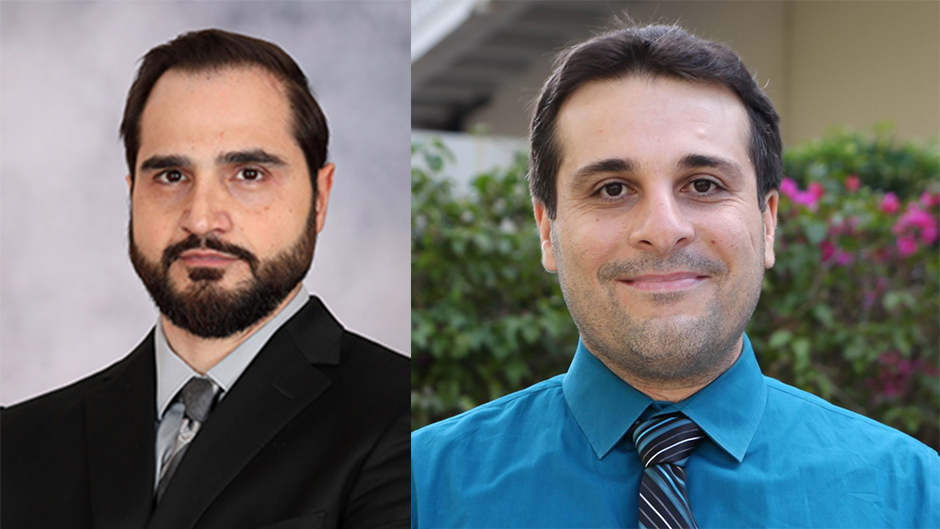“Our Coastal Infrastructure Resilience Research summer program will offer cutting-edge research opportunities to talented and motivated undergraduates, with a focus on recruiting students from historically underrepresented groups,” said Ali Ghahremaninezhad, Ph.D., associate professor in the Department of Civil and Architectural Engineering (CAE).
“Miami is at the epicenter of global issues like sea level rise and hurricane preparedness, so this is a prime location for students to witness the importance of science and engineering on coastal communities' infrastructure,” added Ghahremaninezhad, who is the principal investigator for the three-year $431,333 award–the College of Engineering’s first NSF Research Experiences for Undergraduates grant.
Co-principal investigator, James Giancaspro, Ph.D., CAE associate professor and graduate program director, said the first cohort of 10 or more undergraduates will begin in summer 2023. Applications will be accepted later this year from college students in South Florida, Puerto Rico, and beyond. “Our primary goal is to expand the pipeline of STEM (science, technology, engineering and math) professionals,” he said. “We hope the students will eventually matriculate into graduate programs and ultimately contribute to breakthroughs in coastal science and engineering.”
Giancaspro said the collaborative multidisciplinary program will be open to undergraduates with interests in engineering, chemistry, biochemistry, biology, and the natural and marine sciences. Faculty members from the University’s College of Arts & Sciences, College of Architecture, Miller School of Medicine, Rosenstiel School of Marine and Atmospheric Science, as well as the College of Engineering will be involved in the program.
The Coastal Infrastructure Resilience Research program will include laboratory experiences, such as examining the roles of self-healing concrete and composite materials in enhancing coastal resiliency, Ghahremaninezhad said. “Students will also learn about the region’s artificial coral reefs, flooding risk, smart sensing, beach environmental biosafety and other issues facing our coastal communities.”
Students will also take part in a variety of field experiences, such as meeting local government officials and visits to the Rosenstiel School’s marine campus. “We will have guest speakers, professional development seminars, and hands-on workshops, with little time spent in a traditional classroom,” Giancaspro said. “Instead, they will be out in the coastal communities networking with professionals and learning firsthand about climate-related challenges and resiliency initiatives already underway in our region.”
Ghahremaninezhad emphasized and acknowledged the critical role of the following faculty members with a complementary range of expertise, who will be involved in and contribute to the success of this exciting grant: Prannoy Suraneni, Esber Andiroglu, Marc Knecht, Luis Ruiz Pestana, Helena Solo-Gabriele, Antonio Nanni, Landolf Rhode-Barbarigos, Sakhrat Khizroev, Qingda Yang, Ramin Moghaddass, Brian Haus, and Diego Lirman.

